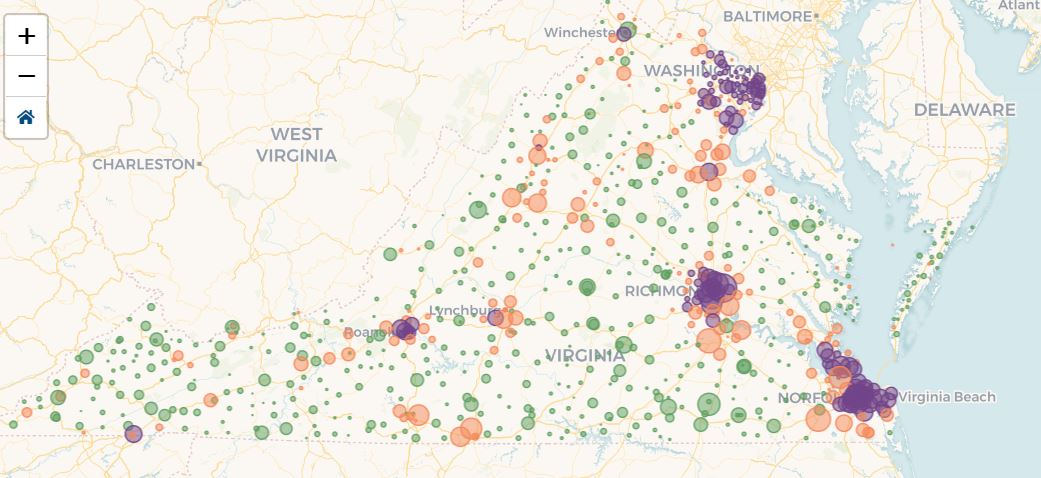
by James A. Bacon
While Virginia Democrats continue to batter Republicans with charges of “voter suppression,” they also continue to rig the electoral system to favor Democrats.
The national Census counts incarcerated persons at the correctional facilities where they are held. But a new Virginia law requires the state Redistricting Commission to assign prison inmates to their last known residential address, a move that will, in the words of the Virginia Public Access Project, “transfer political clout from rural to urban areas.” Unstated is the fact that it will also transfer political clout from Republican areas to Democratic areas.
The residence of an estimated 20,000 prisoners will be affected.

Bacon’s bottom line: The creativity of the ruling class is boundless when it comes to perpetuating their hold on power. No stone is too small to turn over in the quest to shape the voting electorate and affect the redistricting process.
Here is the absurdity of assigning “last known” residential addresses to prison inmates: It’s not their current address! Does it make sense at all to count an inmate who has resided in Red Onion State Prison for 10 years as, say, a Richmond resident, an Arlington resident, or a Martinsville resident? What if the offender was serving in the Navy and had been stationed in Norfolk for six months and now resides, courtesy of the Department of Corrections, in Buchanan County? By what stretch of logic is he counted as a Norfolk resident?
Upon what basis does the law assume that inmates will continue to live where they lived before? Has anyone studied the matter to see where inmates go when they are released from prison? Does an offender whose previous address was the City of Richmond necessarily return to Richmond and not to Henrico or Chesterfield, a different metropolitan region, or even out of state?
A favorite theme of fellow columnist Don Rippert is how old “plantation elite” governing class rigged the political system in innumerable ways, from staggered election years to one-term governors, to maintain their lock on power. Well, a new political class, the “woke elite,” runs Virginia today and it is doing the same thing.
Welcome to the new boss, same as the old boss.

Leave a Reply
You must be logged in to post a comment.